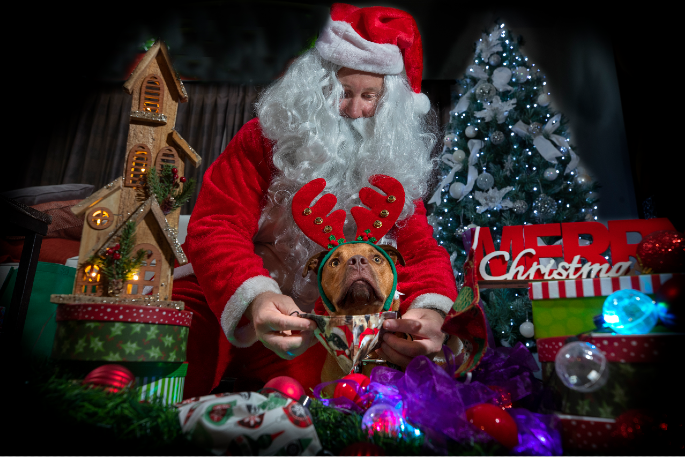It can be hard to resist those puppy dog eyes once you've finished your Christmas feast, but it's important not to share with your furry friends.
Doing so can have serious health consequences for them.
Animals digest and metabolise food differently to humans, so what might be perfectly fine for us can be poisonous to them, says SPCA Bay of Plenty area manager Sue Kinsella.
'The best way to avoid an expensive emergency trip to the vet this Christmas is to make sure you're not sharing food with your pets, and that things like chocolate aren't left under the tree or in a place where they can easily be reached by a curious cat or dog,” say Sue.
Common festive foods that are not safe for pets
- Turkey skin/pork crackling/sausages/fatty meats: these can cause vomiting, bloody diarrhoea and may lead to pancreatitis.
- Fruit cake and Christmas pudding: raisins and grapes are toxic to cats and dogs' kidneys. If eaten they can cause lethargy, excessive thirst, vomiting and in serious cases can be fatal.
- Chocolate: for cats and dogs, chocolate can cause elevated heart rate, seizures, vomiting and diarrhoea.
- Alcohol and caffeine: these are both toxic for pets.
- Avocados: these contain persin which causes symptoms ranging from vomiting and diarrhoea to cardiac arrest and death. Birds are particularly sensitive to persin but avocado should not be fed to any pets.
- Macadamia nuts: can cause vomiting, weakness and tremors if eaten by dogs.
- Onions and chives: these contain disulphides and sulfoxides, which can damage red blood cells if eaten by cats and dogs.
- Pits and seeds of peaches, plums, persimmons, and apples: these contain a substance that degrades to cyanide, which is toxic. The pits of peaches are also choking hazards that can cause blockages and damage to the intestine.
- Xylitol (a common ingredient in sugarless treats and sugarless gum): causes hypoglycaemia in dogs, which can lead to seizures and liver failure in severe cases.
- Sweet-corn cobs: these can cause blockages in the small intestine that may need to be removed surgically. Don't let dogs chew on the cob.
Decorate with care
It's also important to keep animals safe around your Christmas tree and decorations.
Make sure your tree is safely secured so it won't topple over. For real trees ensure your animals don't chew on the fallen needles as the oils can irritate their mouth and if eaten they can cause stomach irritation and vomiting
Also stop your dog or cat from using the tree stand as a water bowl, the bacteria in stagnant water can be harmful. Use a Christmas tree skirt, a plastic bag or cling film to cover the stand.
You also need prevent your animals from chewing on power cords or lights, be careful of sharp and delicate ornaments, monitor lit candles, and skip the tinsel or keep it out of reach to avoid accidental ingestion and costly surgery.
Involving pets in Christmas festivities
As much as it's important to keep your pets safe at Christmas, you can also include them in the festive fun. You can involve your dog by letting them by unwrap their own present, even if the present is a toy they already own, they will love ripping it open and discovering it anew.
You can also freeze kibble or treats in ice or put it into toys so your pets can gradually extract the food.



0 comments
Leave a Comment
You must be logged in to make a comment.